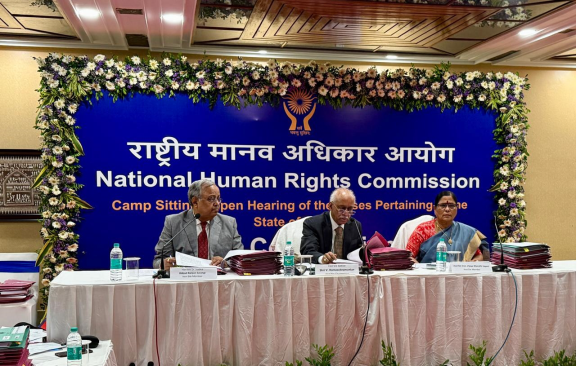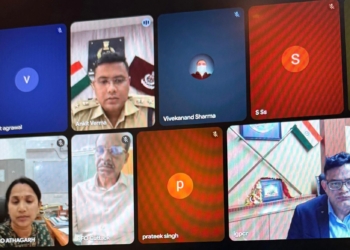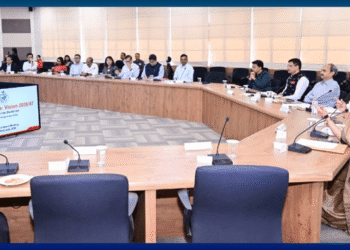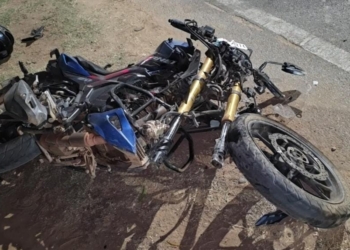The National Human Rights Commission (NHRC), India, has concluded its two-day Odisha Open Hearing and Camp Sitting in Bhubaneswar, during which it heard 144 cases and recommended approximately Rs. 28 lakh in monetary relief for victims of human rights violations in the state.
The NHRC Chairperson, Justice V. Ramasubramanian, alongside Members Justice (Dr.) Bidyut Ranjan Sarangi and Smt. Vijaya Bharathi Sayani oversaw the proceedings, which included the Secretary General, Bharat Lal, Registrar (Law) Joginder Singh, senior government officials, and the complainants.
The cases reviewed covered a wide range of issues, including custodial deaths, fatalities in state-run homes, children dying in hospitals due to fire, drowning incidents, dog bites, child trafficking, denial of basic human amenities, crimes against women (including rape), crimes against children, missing persons, police atrocities, suicides, non-registration of FIRs by the police, and electrocution cases.
The Commission issued various directives, including granting pensions, providing interim relief of Rs. 15,000, and offering other social welfare benefits to a senior tribal woman. It also expedited police investigations and urged the filing of charge sheets in multiple cases, as well as recommended compensations of Rs. 4 lakh each to the next of kin of five workers who died in a hazardous cracker factory.
After hearings, the Commission closed 38 cases based on the testimonies of complainants and state officers. Additionally, three cases were closed after the concerned officers submitted compliance reports with proof of payment, as recommended by the Commission.
The NHRC noted that compensation under the Victim Compensation Scheme, totalling Rs. 1 crore, was pending in 25 cases. It met with the Member Secretary of the Odisha State Legal Services, who ensured that these cases would be resolved promptly.
Following the hearings, the Commission convened a meeting with the Chief Secretary, Director General of Police, and senior officials from the Odisha Government to discuss various human rights issues. Topics included crimes against women and children, deaths from snake bites, trafficking during the COVID-19 pandemic, flood-related problems in parts of Odisha, and human rights violations linked to the practice of witchcraft and sorcery. The Commission appreciated the compliance of state officials with its directives.
The NHRC stressed the need for timely action reports on various advisories related to mental health, bonded labour, and the right to food and safety. The Chief Secretary assured full compliance in this regard.
The Commission also engaged with representatives from civil society, NGOs, and human rights defenders. A moment of silence was observed in memory of Odisha’s respected Human Rights Defender and Advocate, Shri Radhakanta Tripathy, who was recognised for his unwavering commitment to justice and equality, positively impacting countless lives throughout Odisha. Attendees raised concerns regarding human rights education, police reforms, and issues faced by transgender individuals regarding access to education and identity documents. NGOs and human rights defenders welcomed the NHRC’s initiative to connect with them and discuss ways to enhance human rights in the country.
NHRC Chairperson Justice V. Ramasubramanian emphasised the importance of ongoing collaboration between NGOs, human rights defenders, and the Commission in strengthening human rights throughout the nation. He announced that complaints regarding human rights violations can be filed online at hrcnet.nic.in. The Commission commended the work of NGOs and human rights defenders in the state and encouraged them to continue their efforts without fear or favour.
Finally, the Commission briefed the media on the outcomes of the Camp Sitting and Open Hearing.






























